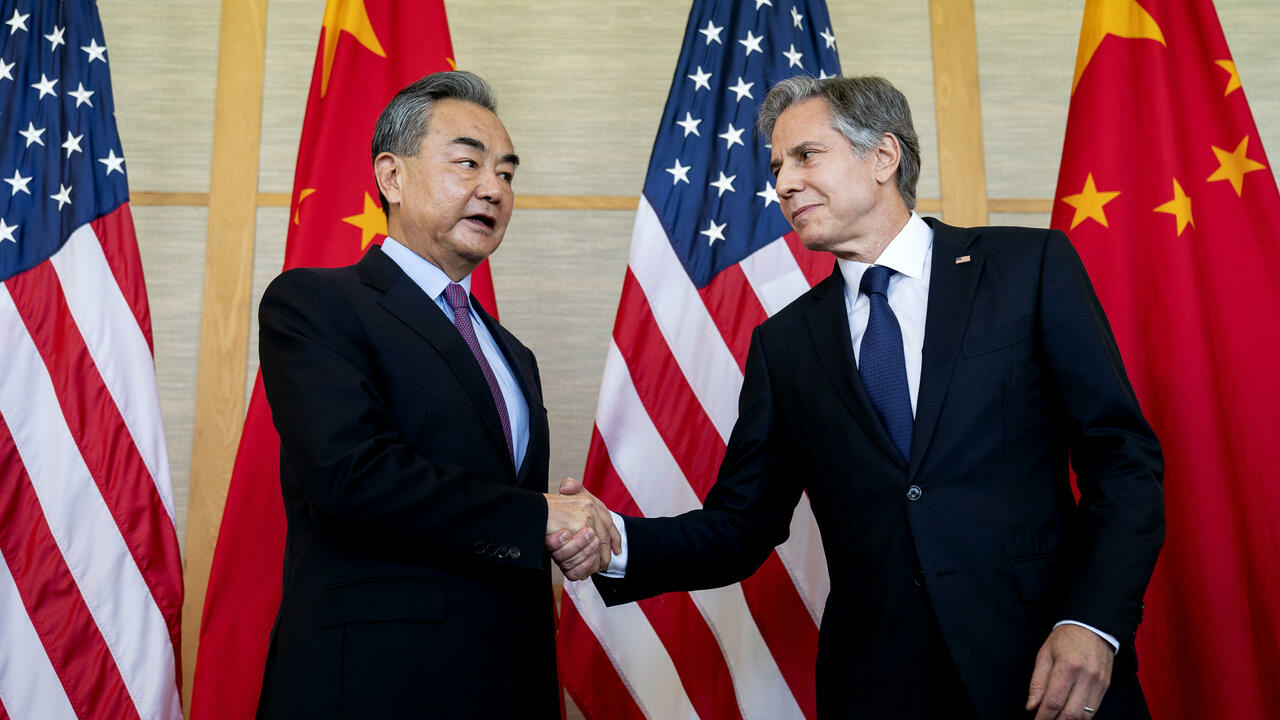
Bali (Indonesia) (AFP) – The United States and China held “constructive” talks Saturday, Washington’s top diplomat said, after an unusually long meeting aimed at preventing bilateral tensions from spiralling out of control.
Advertising Read more
Secretary of State Antony Blinken and Foreign Minister Wang Yi held their first talks since October on the Indonesian island of Bali as the two powers stepped up interaction at a time when the West is focused on Russia’s invasion of Ukraine.
“Despite the complexities of our relationship, I can say with some confidence that our delegations found today’s discussions useful, candid and constructive,” Blinken said after five hours of talks.
“The relationship between the United States and China is highly consequential for our countries but also for the world. We are committed to managing this relationship — this competition — responsibly,” he said, promising to keep open channels of diplomacy with Beijing.
The meeting, in which the pair held morning talks and then a working lunch, largely focused on preventing competition spilling over into unintentional conflict but also Washington’s opposition to Beijing on a range of issues including Taiwan and human rights.
“I conveyed deep concerns of the United States regarding Beijing’s increasingly provocate rhetoric and activity towards Taiwan and the vital importance of maintaining peace and stability across the Taiwan Strait,” Blinken said.
He also voiced concerns over Ukraine, pressing Wang on Beijing’s tacit support of Moscow’s invasion of its neighbour and calling for it to distance itself from Russia a day after the Kremlin’s top diplomat faced a barrage of Western criticism at the G20 talks.
“This really is a moment where we all have to stand up, as we heard country after country in the G20 do, to condemn the aggression, to demand among other things that Russia allow access to food that is stuck in Ukraine,” Blinken said.
US officials have also been cautiously upbeat about China’s stance on Ukraine, condemning its rhetorical backing of Russia but seeing no sign that Beijing is backing its words with material support.
US Secretary of State Antony Blinken and Chinese Foreign Minister Wang Yi — seen here in Rome in October 2021, the last time they met — are to meet in Bali, in a bid to keep tensions from spiralling Tiziana FABI POOL/AFP/File
Before the meeting started, Wang told reporters Chinese President Xi Jinping believed in cooperation as well as “mutual respect” between the world’s two largest economic powers and that there needed to be “normal exchanges” between them.
“We do need to work together to ensure that this relationship will continue to move forward along the right track,” Wang said in front of US and Chinese flags.
Moderating tone
It was Blinken and Wang’s first in-person meeting in months, and they are expected to prepare for virtual talks in the coming weeks between Xi and President Joe Biden as both powers increase engagement and moderate their tone.
After a long chill during the pandemic between the two countries, since last month their defence, finance and national security chiefs as well as their top military commanders have all spoken.
China’s state-run Global Times, known for its criticism of the United States, wrote that the growing diplomacy “underscored the two sides’ consensus on avoiding escalating confrontation”.
US views of China have hardened in recent years and Biden has largely maintained the substance of his predecessor Donald Trump’s hardline approach of treating Beijing as the pre-eminent global competitor of the United States.
But Blinken in a recent speech made clear that the United States was not seeking a new “Cold War,” even as he held firm on criticism — including accusing Beijing of genocide against the mostly Muslim Uyghur people, an accusation he repeated after Saturday’s talks.
US Secretary of State Antony Blinken has said the United States is not seeking a new “Cold War” with China Stefani Reynolds POOL/AFP
The Biden administration is widely expected soon to ease some of Trump’s tariffs on Chinese goods, a move that could ease soaring inflation, which has become a major political liability in the United States.
Xi, China’s most powerful leader in decades, is expected to shake up the foreign policy team at the Communist Party’s National Congress later this year.
But Craig Singleton, who follows China at the hawkish Washington-based Foundation for Defense of Democracies, expected Xi again to appoint technocrats who can work with Washington.
“The reason is simply — China’s economy is facing considerable headwinds and Chinese policymakers appear eager to recognise that China’s aggressive rhetoric has backfired,” he said.
© 2022 AFP








